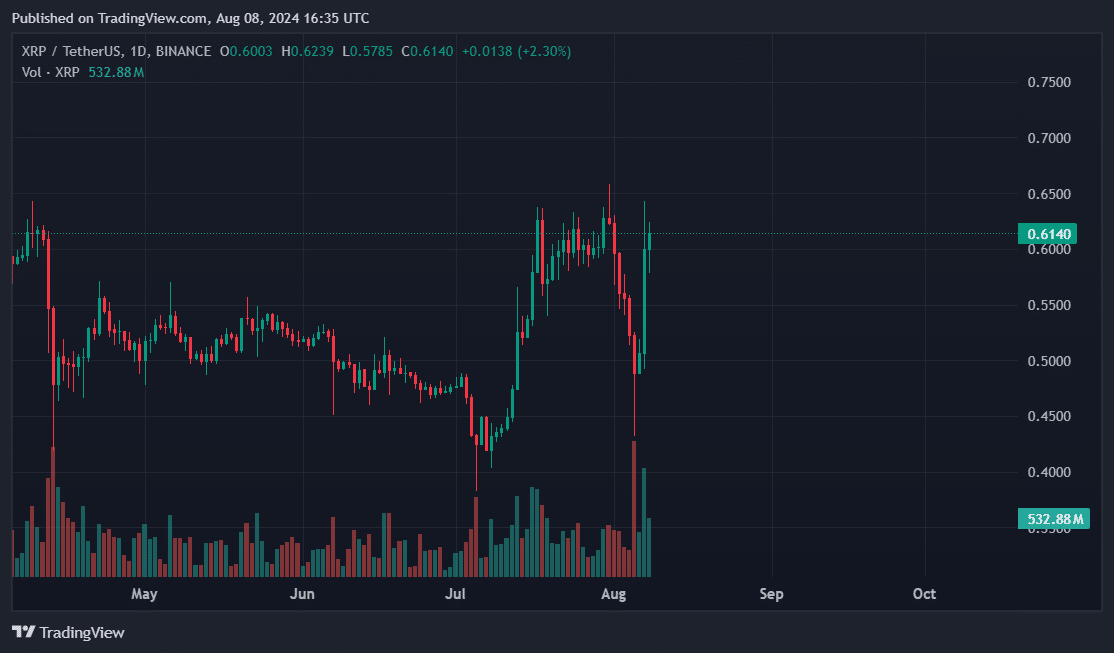Crypto markets saw an XRP god candle after the Ripple v. SEC ruling, but AMLBot’s CEO warned that an appeal from the agency could stall price momentum.
Last year, Ripple’s (XRP) initial triumph over the SEC lifted markets. Sentiment that retail crypto investments aren’t securities flooded the nascent industry and uplifted prices. The final Aug. 7 ruling from U.S. federal judge Analissa Torres similarly affected XRP’s price standing.
Ripple was still up 23% at press time as Torres found no federal securities violations in sales to retail investors via crypto exchanges.
However, institutional XRP sales were deemed a violation, and the U.S. Securities and Exchange Commission secured a $125 million penalty against Ripple.
“If the SEC pursues the case into appeal, I think the price will drop. If not, we might see it rising,” AMLBot CEO Slava Demchuk told crypto.news on Aug. 8.
Ripple and its CEO Brad Garlinghouse applauded the verdict as a victory, but Demchuk said the SEC will likely appeal the result. Following a four-year legal tussle, an SEC appeal might throw further uncertainty on the firm’s cryptocurrency, which some argue operates as a quasi-stock.

How Ripple’s ruling impacts future SEC v. Crypto cases
Torres issued the final verdict roughly four months before the presidential elections in November. There is a belief that a new administration will assume the White House and reform the SEC’s crypto approach. Demchuk argued otherwise, saying the election result will not “considerably change the SEC’s approach.”
Still, the court’s decision on XRP sets the stage for the digital asset industry to challenge the SEC’s claim that most cryptocurrencies are securities.
“Based on the current case, selling tokens via crypto exchanges rather than directly might mitigate the risk of the token being classified as security,” per Demchuk.
Scrutinized crypto businesses like Uniswap Labs and MetaMask maker Consensys may adopt this precedent as ammunition against the SEC in their respective court cases.



